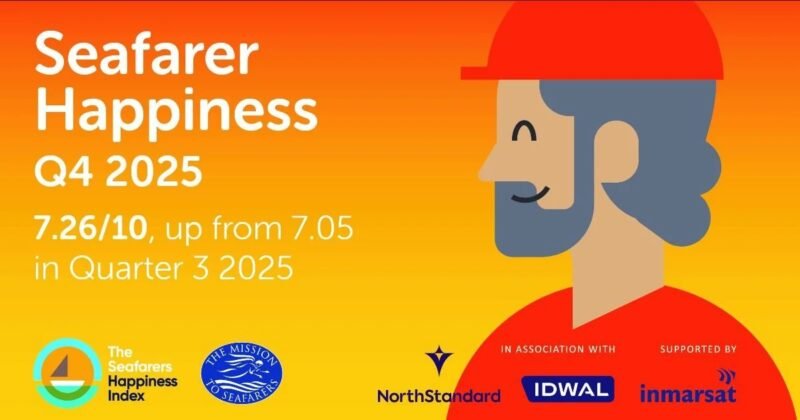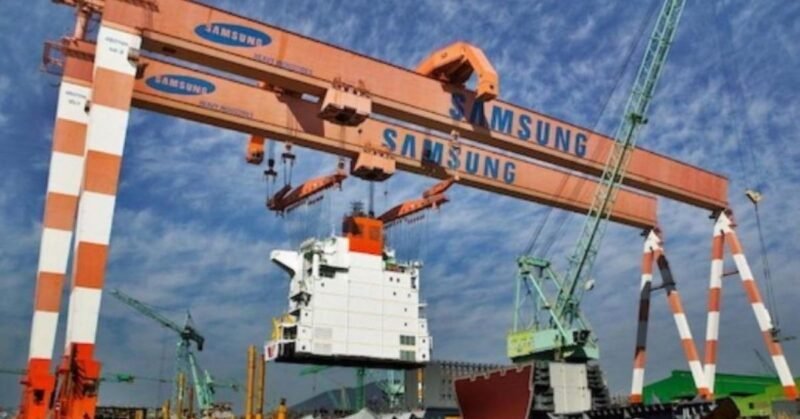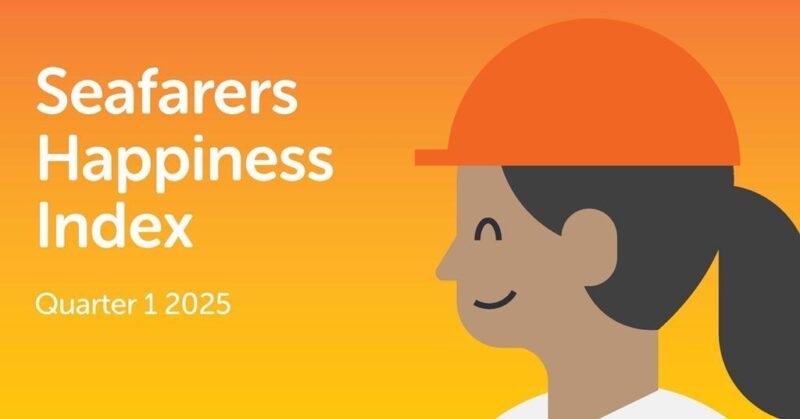The latest Seafarers Happiness Index (SHI) from The Mission to Seafarers indicates a significant decline in seafarer wellbeing, raising alarms about deteriorating working and living conditions at sea. In Q3 2025, the average happiness score dropped to 7.05 out of 10, down from 7.54 in the previous quarter. This downturn is widespread, affecting nearly all aspects of life at sea, with the only improvement noted in digital connectivity. Key areas such as wages, health, training, food quality, and workload management have worsened, reflecting ongoing systemic challenges that threaten morale and safety.
Professional development saw the most significant decline, with dissatisfaction growing over compliance-driven training that lacks genuine mentorship. Crew interactions, previously a strong point, have also weakened under cumulative pressures. Ben Bailey, Director of Programme at The Mission to Seafarers, emphasized the urgent need for the industry to address rising operational pressures and administrative burdens that are impacting seafarer wellbeing. Without meaningful action, the maritime sector risks exacerbating its recruitment and retention crisis, which could have serious implications for safety and global trade stability.
Despite these challenges, there was a slight improvement in digital connectivity, which seafarers highlighted as crucial for maintaining family relationships and mental health. However, disparities in internet access persist among vessels. Crew members reported low manning levels, increased administrative tasks, and unresolved fatigue management issues, leading to chronic stress and fatigue. Economic pressures, including stagnant wages and rising food costs, further complicate their situation, with many expressing frustration over inadequate provisions and a lack of opportunities for rest.
The SHI findings underscore the resilience of seafarers, who continue to express pride in their profession and value strong crew relationships. However, the overall decline in wellbeing across multiple areas raises serious concerns. Industry experts, including Thom Herbert and Yves Vandenborn, stress the importance of addressing these systemic challenges through collaboration and targeted wellbeing initiatives. The report serves as a critical reminder of the need to support those at sea, not just as a moral obligation but as essential for a safe and sustainable maritime industry.
Share it now














